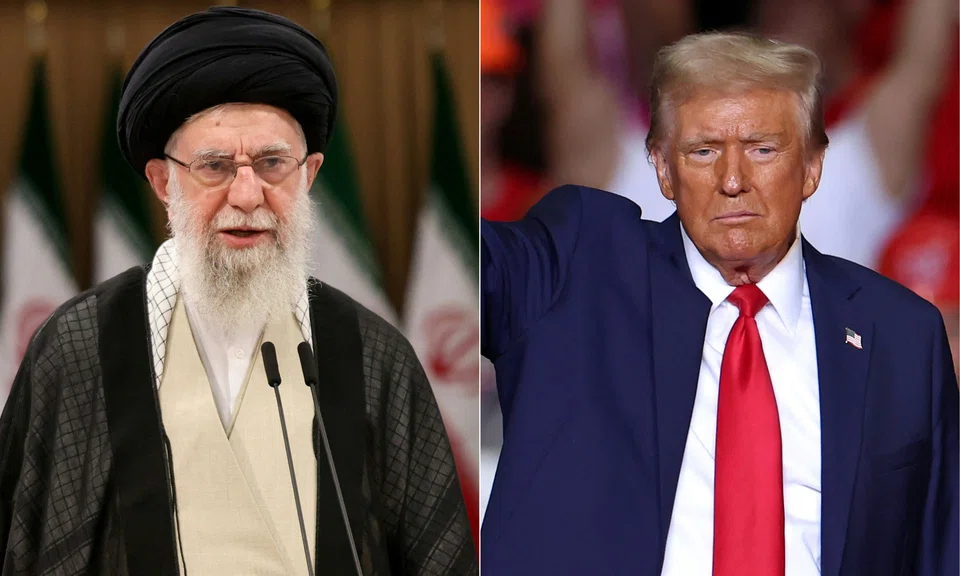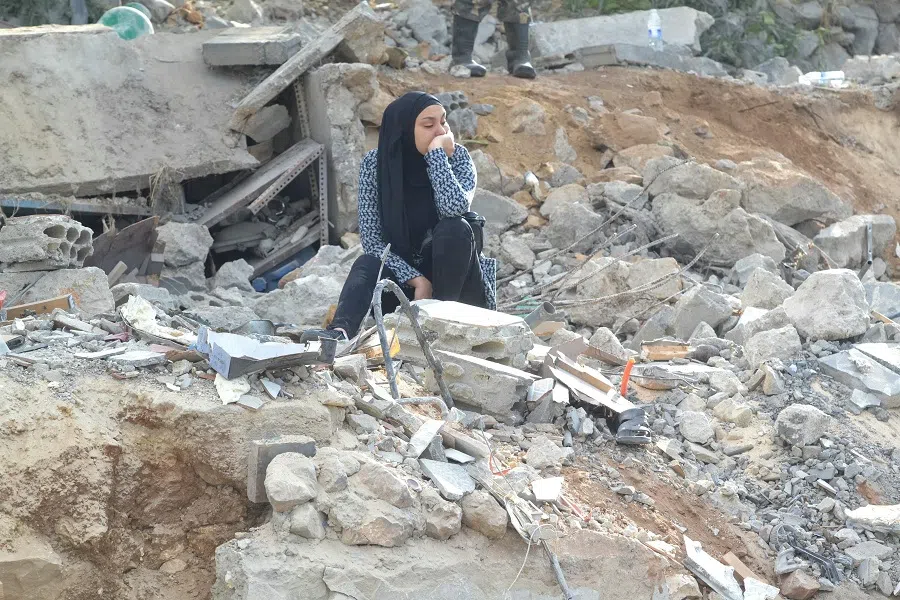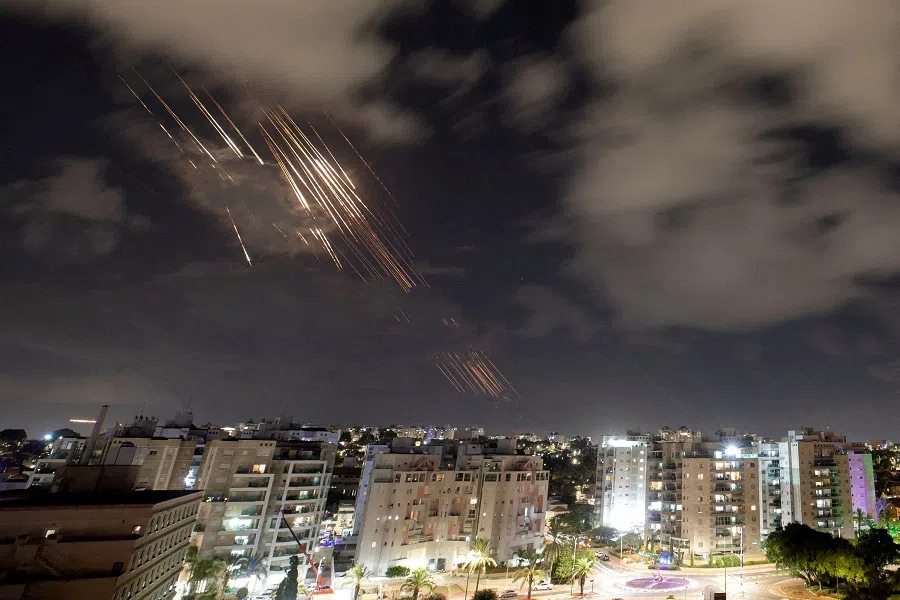Trump’s return: A renewed push against Iran and implications for China
What does the Trump presidency mean for Iran and for US-China relations? How will issues like Iran’s increasing nuclear capabilities and China’s growing influence in the Middle East impact US foreign policy? Analyst Alessandro Arduino discusses potential post-US election changes to the geopolitical landscape in the Middle East.

The future of US-China relations under President-elect Donald Trump remains uncertain. The key question is whether Trump will negotiate with Beijing or adopt a more confrontational stance, treating China as a strategic adversary. The appointments of senator Marco Rubio as secretary of state and representative Mike Waltz as national security adviser — both known for their hawkish positions on China and hostility towards Iran — provide strong clues about the administration’s direction.
US hostility towards Iran
In the short term, however, it appears that Iran may bear the brunt of Trump’s foreign policy wrath. Beyond broad geopolitical strategies, hostility towards Iran is fuelled by Tehran’s ongoing threats to assassinate Trump in retaliation for the US killing of Major General Qassem Soleimani, former commander of the Islamic Revolutionary Guard Corps (IRGC)‘s Quds Force. Soleimani, a key figure in Iran’s clandestine operations, reported directly to Supreme Leader Ali Khamenei. Recently the US Justice Department has announced criminal charges in an Iranian murder-for-hire plan targeting Trump.
While the discussions in Washington continue around potential US or Israeli strikes on Iranian nuclear sites, a return to the “maximum pressure” policy of Trump’s first term — characterised by harsh sanctions and the US withdrawal from the Iran nuclear deal (formally known as the Joint Comprehensive Plan of Action, or JCPOA) — seems increasingly likely. Such measures aim to weaken the Iranian regime, aligning with the interests of Gulf monarchies, despite the 2023 China-brokered detente between Saudi Arabia and Iran.
... a nuclear-armed Iran would likely trigger a regional arms race, unsettling China, which values stability in the energy-rich Middle East.

Recent Israeli airstrikes on Iranian military assets and the Israel Defense Forces (IDF) operations in Lebanon have reestablished some level of deterrence for Israel, whose security posture was questioned after the 7 October attacks. Meanwhile, threats of widespread missile attacks by Hezbollah, a tool of Iranian influence, have not materialised as feared.
Iran’s progress toward military nuclear capability remains a pressing concern not only for Washington but also for Beijing, despite Iran’s proxies’ deteriorating military capabilities and domestic economic problems. Iran has not yet developed a nuclear weapon, but Western experts warn that Iran could quickly produce it.
However, testing such weapons and building a nuclear arsenal for a sustained deterrence posture is not a task that can be accomplished in the short term. In this respect, a nuclear-armed Iran would likely trigger a regional arms race, unsettling China, which values stability in the energy-rich Middle East.
... in the event of a direct strike on Iran, Russia’s support would likely be limited at best, and China’s declared moral support for Tehran may hold little practical significance.
Iran’s allies
Despite US sanctions, Iran is less isolated than during Trump’s first term. It has strengthened economic and strategic ties through the Shanghai Cooperation Organisation (SCO) that connects the Middle East with Central Asia under China’s aegis, through BRICS+, and especially through expanded alliance with Russia, which has been bolstered by Iranian armed drone supplies for Russia’s war in Ukraine. Nevertheless, in the event of a direct strike on Iran, Russia’s support would likely be limited at best, and China’s declared moral support for Tehran may hold little practical significance.
At the same time, increased US sanctions or military backing for Israel could quickly reverberate to China, raising energy security concerns and complicating Beijing’s efforts to act as a diplomatic power broker in the Middle East. A weakened Iran, constantly fearing regime change, might appear to serve the ambitions of regional powers, Israel and the US.

However, pushing an almost nuclear-capable nation into a corner could backfire, delivering unintended and dangerous consequences rather than the desired benefits. Without accounting for nuclear weapons, Iran possesses the largest ballistic missile arsenal in the Middle East, according to US intelligence analysts. These missiles travel at much higher speeds than drones and cruise missiles, making them significantly harder to intercept.
In Tehran, Trump’s return is likely still seen as a signal for increased confrontation.
A global challenge
Besides the security dimension, energy remains a cornerstone of Sino-Iranian relations, underscored by a 25-year strategic agreement signed in 2021. However, this deal has yet to materialise into the ambitious investment plan it promised, with significant Chinese investments in Iran still unrealised.
While Beijing views Iran as a critical pillar of its Belt and Road Initiative strategy in the Middle East, stability is essential for China to solidify its influence in the region. Unfortunately, the near future appears anything but stable. Meanwhile, Beijing has the flexibility to shift some of its energy security needs from Iran to Iraq if necessary.
While some in China view Trump as a pragmatic dealmaker who might be willing to strike agreements with Beijing, such optimism may not extend to Iran even if some comments on Iranian media pointed in that direction. In Tehran, Trump’s return is likely still seen as a signal for increased confrontation.
Reining in a military escalation in the region will be no easy task. Once the genie of war is loose, stuffing it back into its bottle will unleash ripples felt across the globe.

![[Big read] Paying for pleasure: Chinese women indulge in handsome male hosts](https://cassette.sphdigital.com.sg/image/thinkchina/c2cf352c4d2ed7e9531e3525a2bd965a52dc4e85ccc026bc16515baab02389ab)



